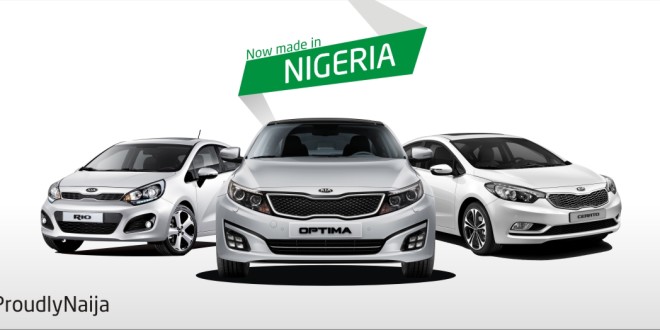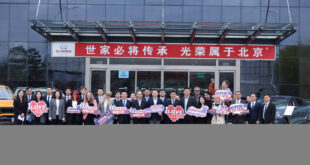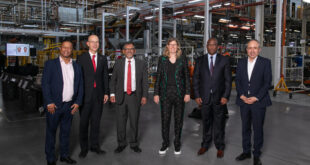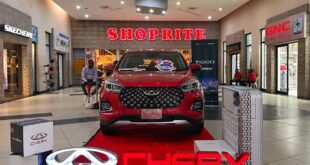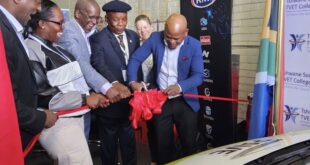Recently at an auto industry forum organised in Lagos by the National Automotive Design and Development Council (NADDC), the stakeholders made a strong appeal for immediate and decisive actions by government on the Nigerian Automotive Industry Development Plan (NAIDP) commonly known as automotive policy.
It was the first meeting of the implementation and monitoring committee since the inauguration of the Gen. Muhammadu Buhari administration in May. The participants, including representatives of the Nigeria Automotive Manufacturers Association (NAMA), Automotive Local Content Manufacturers Association of Nigeria (ALCMAN) and individual assembly plants, were worried that there was no clear indication as to the direction the new government intended to drive NAIDP, even as they had continued to invest on various projects as a mark of confidence in the policy.
Four days earlier, on October 16, NADDC, which is the apex body in the industry, had issued a statement suspending the issuance of licences for setting up new assembly plants, explaining that the response of investors “to the policy so far has exceeded our expectations”, hence the need to switch emphasis “to the development of automotive local content”.
Truly, aside from Innoson Vehicle Motor Manufacturing Company Limited (IVM), which commenced CKD operations (for sundry buses, pick-ups and refuse vehicles) in Nnewi at least four years before NAIDP was announced by the last administration, and the now revived older generation of plants like PAN Nigeria, Kaduna; VON Automobile, Lagos; NTM, Kano, and Leyland-Busan, Ibadan, no fewer than 11 other licences were issued for new facilities by NADDC.
While cars and SUVs (sport utility vehicles) are now assembled locally by Nissan, Kia, Volkswagen, Innoson, Peugeot, Hyundai and, Honda, sundry commercial vehicles – like Transit Support Services’ Shacman heavy duty trucks/tractors at ANAMMCO, MAN Trucks, Ashok-Leyland buses, Ford Ranger pickup by Coscahris and NP300 by Nissan – are also being produced. The list has just been made longer by Zahav Automobile Co. Nig. Ltd with the introduction of Foton Tunland and Stallion Force pick-ups.
The 11 new licensees, including Century Auto (Toyota), TATA, Coscharis Auto (Joylong and Dongfeng), Dana Motors (Renault), Globe Motors (Higer), Leventis (Foton-Diamler), Kewalram Chanrai (GM and Mitsubishi) were given bona-fide manufacturing status and are on track to start assembly operations soon.
In total, about 25 companies have either set up assembly facilities or are in the process of doing so, and there is hardly any segment of the market where there are no local manufacturers operating – passenger cars, buses, SUVs, light/heavy duty trucks, and utility vehicles .
What this means, according stakeholders at the meeting with NADDC, including Dr. Cosmas Maduka and ALCMAN’s Dr. D. V. C. Obi, both of whom were in attendance, is that the policy implementation has reached an irreversible point where all government needs to do now is to sustainably rev up the momentum.
Echoing this view, in separate interviews, the Managing Director of United Vehicle Assembly Limited (Kia Motors), Mr. Jacky Hathiramani; the Senior Vice President (Strategy and Development), Centre for Values in Leadership (CVL), Lagos, Mr. Rasheed Adegbenro; and the Managing Director of Transit Support Services, TSS (a sister company to ABC Transport Plc), Mr. Frank Nneji, argued that it is in the long term interest of the Nigerian economy and a virile automotive industry in particular, for the policy to be sustained.
Like Maduka, the Chairman of Innoson, Dr. Innocent Chukwuma, couselled against “a policy summersault”, which would do irreparable harm to the investments of the assembly plants and their technical partners, in addition to sending negative signal to the global business community.
Advising government to be cautious not to bend to pressure from vehicle importers in the trading sector, Adegbenro, who was until recently the acting Director-General, MAN (Manufacturers Association of Nigeria) and was the Assistant General Manager Sales & Public Relations in the defunct Volkswagen of Nigeria Limited (now VON Automobiles), recommended a review of the NAIDP where necessary, and in a manner that would not defeat its goals.
Interestingly, the stakeholders do not agree on what should be done to the aspect of the policy guideline which provides for progression from SKD (semi-knocked down) 1 and SKD 2, to the more tasking CKD (completely knocked down) production. Fiscal measures relating to the policy clearly state that SKD 2 kits imports for the easiest and fastest level of assembly attract only 10 percent tariff without levy, SKD 1 kits for slightly more advanced level of assembly attract 5 percent tariff without levy, and advanced assembly level of CKD attracts 0 percent tariff without levy. But, the controversial clause is that irrespective of the stage of assembly invested in, the company can import fully built units twice the number they assemble paying only 35 percent duty, without levy as well.
While recommending a clearer definition of SKD/CKD assembly and stricter check against abuse of the provision for importation of FBUs, Nneji said it is not improper for an assembly plant to start with SKD before moving on to the CKD stage; a view endorsed by Hathiramani, saying “it is right to do it in phases, otherwise, we will never start”.
Recently, the Director-General of NADDC, Aminu Jalal, had explained that the provision was made to ensure that local assembly gained volume within the shortest possible time and to create demand for existing and potential local content companies.
However, Obi and Chukwuma, were of the view that SKD assembly leaves room for manipulation by companies whose target is to exploit the clause that encourages importation of FBU. Reacting, Adegbenro remarked: “SKD will constitute delay in the march towards full assembly operations. Policy focus in favour of SKD will also limit the growth of local content manufacturers who represent a critical group in the value chain for the automobile sector. In summary, investment drive should be in favour of CKD assembly operation as we rethink Nigeria’s stake in the automobile industry”.
But, the fundamental issue remains how to drive volume of production and sales to the level where it makes economic sense for the local content manufacturers and suppliers to invest in the domestic auto industry in order to facilitate CKD operations. And, it was the question the President and CEO Ford Motor Company of Sub-Saharan Africa, Mr. Jeff Nemeth and the President/CEO of Coscharis, Dr. Cosmas Maduka, had to deal with at the recent roll-out of the made-in-Nigeria Ford Ranger, with both dwelling on the importance of high volume as the brand looks forward to increasing output and launching new products.
“The success of a virile automobile sector rests on economy of scale”, remarked Adegenro. “The higher the production volume, the better the chances of survival of the main assembly plant. Two elements play key role in this regard: The patronage of government and the mass market. Government as the largest single spender in the economy could use her resources to provide a minimum level of demand that would assist the automobile plants at commencement of production”.
The former acting MAN Director-General, as well as the Kia Motors Managing Director, also hailed the planned introduction of a vehicle purchase scheme by NADDC through WesBank (a leading provider of vehicle finance and car insurance services in South Africa), as another means of generating patronage for the domestic auto industry. The scheme, according to NADDC, is being packaged to empower the middle class to purchase vehicles with elative ease.
The stakeholders further called for the strict enforcement of the existing gazette and a provision in the policy guideline which requires ministries, departments and agencies at various levels of government to source all their vehicular requirements from the domestic auto industry, except where such products cannot be produced locally.
Announced on October 2, 2013, following the approval by the Federal Executive Council (FEC) of that day presided over by the former President, Goodluck Jonathan, the NAIDP came into full effect on Tuesday, July 1 last year, to attract off-shore investments which have been scarce in the industry, resuscitate dormant plants and encourage technologically advanced manufacturing activities. High tariff on imported ready-made vehicles was a key measure intended to whittle away the advantage enjoyed by CBU importers over local assemblers. The ultimate goal is the local production of affordable vehicles.
Towards this end, a new regime of fiscal measures on imported vehicles pegged duty on FBU cars at 35 percent, plus 35 percent levy, totaling 70 percent. A waiver was granted to second-hand vehicles importers by which the influx of the so called tokunbo was to continue on the old duty regime till December 31, 2014. The deadline has since been shifted twice, while the used vehicles still flood in.
According to the stakeholders, this is another major factor militating against growth in the assembly business, that government should muster the political will to address, if it truly wants the NAIDP to succeed. Again, the investors and analysts are torn between an outright ban and imposition of high duty on the used vehicles. “Government must make up its mind. There is no need postponing the painful decision”, Maduka said at the Ford Ranger unveiling, likening the decision makers to a woman who wants a child, “but is afraid of the rigour of pregnancy and labour pain.”
Rather than a complete ban on the import, Adegbenro recommended a prohibitive tariff: “Import bans have not been effective in our domestic economy due to poor implementation and abuses that combine to make government lose revenue and local manufacturers suffer loss of investment. High tariff may be a better choice in policy if the regulatory agencies, particularly the Nigeria Customs Service, are committed to it”.
Obi, Hathiramani, and a NAMA chieftain, Babatunde Kolade, however called for an immediate stoppage of the importation of the used vehicles by government. “No country in the world produces vehicles at home and at the same time allows indiscriminate inflow of used vehicles”, Kolade argued.
——Moses Akaigwe
 ..:: AUTO REPORT AFRICA ::..
..:: AUTO REPORT AFRICA ::..
